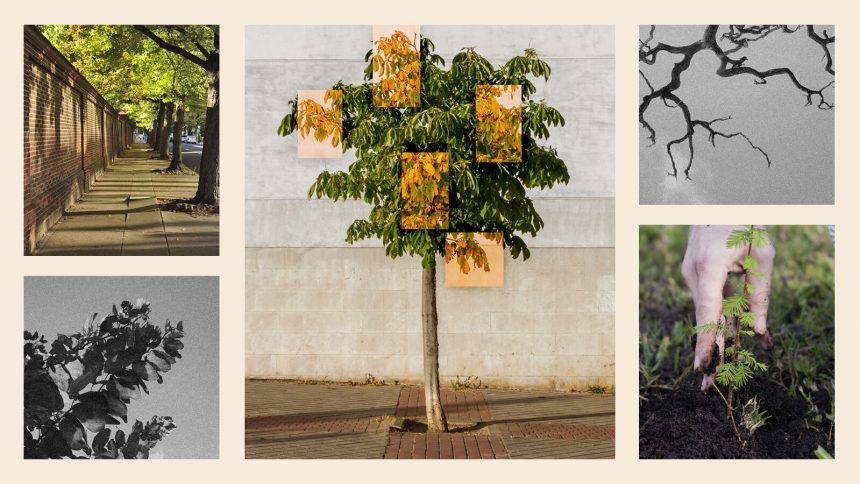Last fall, I had the pleasure of welcoming a stranger into my yard. It was a small evergreen tree named Manzanita, known for its peeling red bark and delicate pitcher-shaped blossoms. Thriving on the dry, rocky ridges of Northern California, this drought-tolerant tree can endure over 200 days without water. Despite its native habitat, I carefully planted an 18-inch variety in the damp soil of Tacoma, Washington, a city known for its Douglas firs and copious rainfall.
The changing climate due to global warming is wreaking havoc on trees worldwide. High temperatures, drought, and pests are causing significant stress on native forests, leading to the death of iconic species like California’s Joshua trees. The impact of these shifts is evident as dead and decaying trees dot landscapes in different continents.
In cities, the urgent need to plant trees for the future is crucial. Trees play a vital role in cooling urban areas and reducing heat-related deaths, especially in marginalized communities where green spaces are lacking. While reducing greenhouse gas emissions is the best solution to combat climate change, planting diverse and resilient tree species is essential.
Scientists and urban foresters are racing against time to find new tree varieties that can adapt to the changing climate. Experiments are being conducted to predict the resilience of different species, with a focus on sourcing trees from distant regions that have already adapted to similar conditions.
The Royal Botanic Gardens at Kew is shifting its focus towards growing tree species that can thrive in a future climate. By collecting seeds from diverse regions like Romania and planting them in London, researchers are hoping to create a more resilient urban forest that can withstand hotter summers and changing environmental conditions.
In conclusion, the quest for a new urban forest is underway as cities around the world face the challenges of climate change. By planting diverse and resilient tree species, we can build a greener and more sustainable future for humanity.






